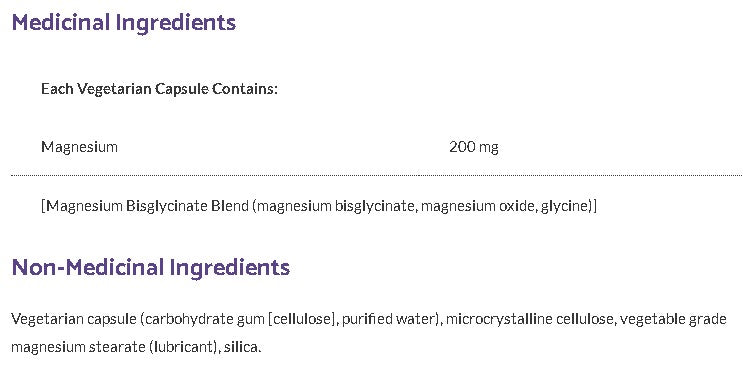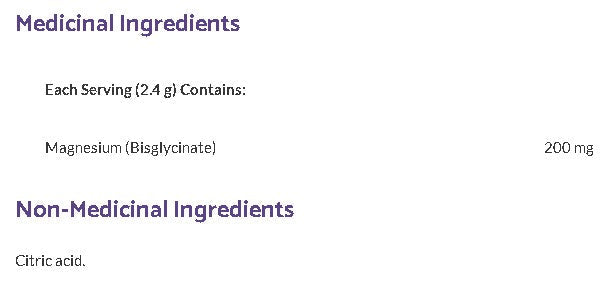







Magnesium Bisglycinate 200 mg
- 20.99$
0.00$- 20.99$
- Unit price
- per
Description
x- The bisglycinate form of magnesium is more easily absorbed than salt forms such as magnesium oxide1
- The chelated form of bisglycinate is less likely to cause laxative effects than the saline forms1,2.
- The powder form allows for easy and convenient dosing away from food.
- The vegetable capsules provide 200 mg of elemental magnesium per capsule.
- GMO-free and suitable for vegetarians/vegans
- Sugar-free, with a pleasant taste due to citric acid for the powdered version
Magnesium contributes to normal muscle function. It also supports metabolism, i.e., the ability to obtain energy from proteins, carbohydrates, and fats. Magnesium helps normalize blood pressure and fasting blood sugar levels, improve insulin sensitivity, and reduce the risk of developing type 2 diabetes mellitus, while reducing blood pressure, hyperglycemia, and triglycerides in metabolic syndrome. Magnesium needs can be increased by stress, an unbalanced diet, coffee and alcohol consumption, and certain medications such as proton pump inhibitors. Therefore, it can be difficult to meet the body's daily magnesium needs through diet alone.
In a randomized, controlled trial, healthy older women were assigned to a treatment group receiving 300 mg of magnesium daily or a control group. After 12 weeks, the treatment group showed significant improvements in physical performance compared to the control group. The authors concluded that supplementation may play a role in preventing age-related physical decline. A double-blind, placebo-controlled trial showed that supplementing with 300 mg of magnesium bisglycinate daily for four weeks decreased the frequency and intensity of pregnancy-induced leg cramps. Magnesium is an important factor in muscle mass and repair and has been shown to relieve muscle cramps from a variety of causes.
Produits recommandés
Produits récemment consultés
- Choosing a selection results in a full page refresh.





